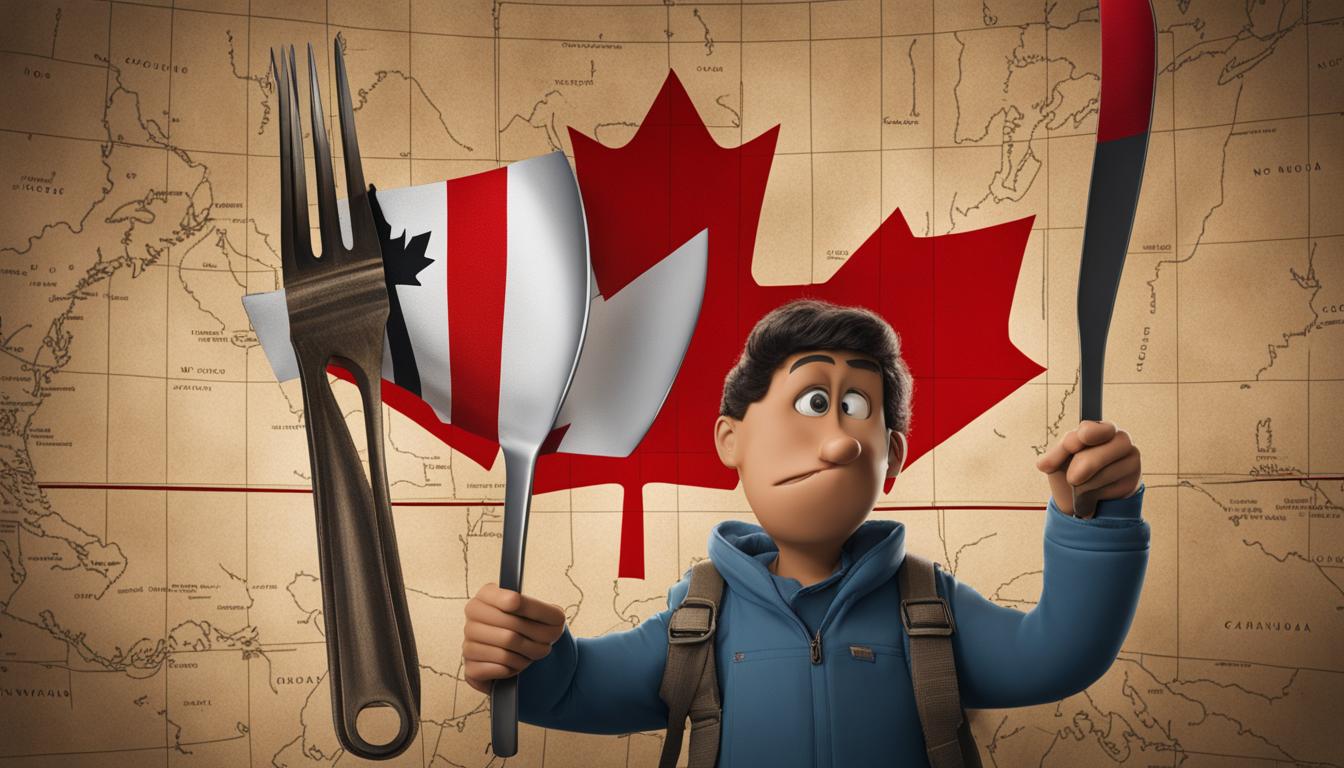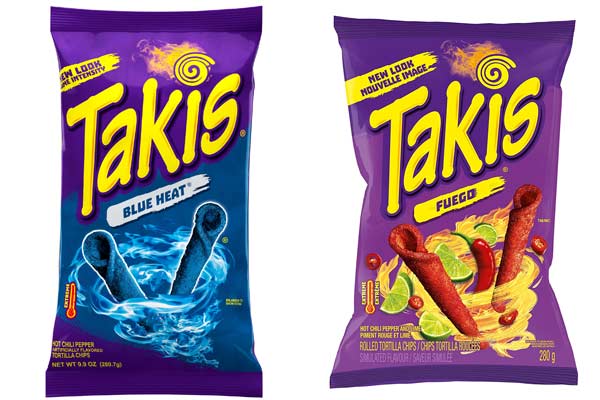Are Forks Illegal In Canada? – The Truth Behind the Myth
Are forks illegal in Canada? This question has gained attention due to a viral TikTok video that claimed forks were banned in the country. However, the truth is quite different. While Canada does have laws to ban single-use plastics, including plastic forks, forks themselves are not illegal. Let’s dive into the details and debunk the myth surrounding fork legality in Canada.
Key Takeaways:
- Forks are not illegal in Canada, despite a popular myth circulating on social media.
- Canada has laws to ban single-use plastics, including plastic forks, as part of their zero-waste initiative.
- Forks made of materials other than plastic are perfectly legal and commonly used in Canada.
- While forks are not actively policed by law enforcement, certain establishments or public spaces may have regulations regarding their use.
- Embracing sustainable alternatives to plastic cutlery is essential for reducing plastic waste and protecting the environment.
The Origin of the Fork Myth – The Great Canadian Fork Fight of 1812
A viral TikTok video that referenced the Great Canadian Fork Fight of 1812 perpetuated the myth of forks being illegal in Canada. However, no historical evidence of such a fork fight ever occurring.
The video took the announcement of the ban on single-use plastics by the Minister of Environment and Climate Change out of context and used it as the basis for the fictional fork ban. The ban on single-use plastics is part of Canada’s goal to achieve zero plastic waste by 2030.
The Great Canadian Fork Fight of 1812, as depicted in the TikTok video, claimed that Canadian citizens revolted against the introduction of forks by British colonial rulers.
The video suggested that a massive fork fight broke out, leading to forks being banned in the country. However, this is purely a work of fiction and not based on any historical events or records.
The ban on single-use plastics, which includes plastic forks, is a real initiative in Canada. It is aimed at reducing plastic waste and transitioning to more sustainable alternatives.
The ban, however, has nothing to do with any fork-related conflicts or historical events. It is essential to separate fact from fiction and understand the actual reasons behind the regulations implemented by the Canadian government.
In the words of the Minister of Environment and Climate Change, “Our aim is to achieve zero plastic waste by 2030. Banning single-use plastics, such as plastic forks, is an important step towards reducing pollution and protecting our environment.”
| Myth | Reality |
|---|---|
| Forks are illegal in Canada | Forks are not illegal in Canada |
| The Great Canadian Fork Fight of 1812 | There is no historical evidence of such an event |
| Single-use plastics ban | Part of Canada’s zero waste initiative |
Canadian Fork Laws and Regulations
Knife Laws and Automatic Knives
Canada has strict knife laws, and carrying knives that can open automatically, such as switchblade knives, is illegal. This includes knives with a mechanism to open the blade with a button, spring, or other automatic methods.
However, no specific laws or regulations pertain specifically to forks. This means that forks made of different materials, such as metal or wood, are perfectly legal to possess and use in Canada.
Using Forks in Public Places
While using forks in private settings, such as homes and restaurants, is generally allowed, using forks in public places can be prohibited in certain circumstances. This is because forks, like any other utensil, can be considered potential weapons if used in a threatening or harmful manner.
Public locations, such as parks or public transportation, may have rules and regulations regarding utensil use to ensure public safety and prevent potential incidents.
| Type of Regulation | Details |
|---|---|
| Knife Laws | Automatic knives, such as switchblade knives, are illegal to carry in Canada. |
| Specific Fork Regulations | No specific laws or regulations pertain solely to forks in Canada. |
| Use in Public Places | Using forks in public places may be prohibited in certain circumstances to ensure public safety. |
Compliance and Responsibility
Respecting private property rules, following establishment guidelines, and being mindful of the potential impact of one’s actions are all essential.
Strange Laws in Canada (Beyond Forks)
Unusual Canadian Regulations
Here are some examples of strange laws in Canada:
- In Alberta, it is illegal to paint a wooden ladder because it is considered vandalism.
- In Halifax, Nova Scotia, taxi drivers must wear socks, shoes that match, and a shirt that covers their midriff.
- In Saskatchewan, it is against the law to distribute comic books that depict criminal acts.
- In Toronto, it is illegal to drag a dead horse down Yonge Street on a Sunday.
These laws may seem bizarre, but they serve as a reminder of Canada’s rich cultural diversity and historical legacy. Whether remnants of bygone eras or simply humorous legislations, these strange laws add an exciting twist to the country’s legal landscape.
| City | Unusual Law |
|---|---|
| Alberta | It is illegal to paint a wooden ladder in an act of vandalism. |
| Halifax, Nova Scotia | Taxi drivers must wear matching socks and shoes and a shirt that covers their midriff. |
| Saskatchewan | Distributing comic books depicting criminal acts is against the law. |
| Toronto | Dragging a dead horse down Yonge Street on a Sunday is illegal. |
“These strange laws may have historical or cultural significance, but their enforcement might be rare or overlooked in practice. Nevertheless, they make for interesting stories and a glimpse into the peculiarities of Canadian legislation.” – Legal Expert
Fork Alternatives and Sustainable Options
Canada has raised sustainable cutlery options in response to the ban on single-use plastics, including plastic forks. Consumers are becoming more conscious of the environmental impact of plastic waste and are seeking eco-friendly alternatives.
One innovative solution that has gained popularity is edible cutlery. Made from materials like rice, millet, and wheat flour, these edible utensils offer a unique and sustainable alternative to traditional forks.
Companies such as Edibles by Jack, IncredibleEats, and TwentyFiftyFork have developed their formulas for edible cutlery. These products not only provide a functional utensil for eating, but they also contribute to the reduction of plastic waste.
Edible cutlery is eco-friendly and provides a tasty and convenient option for those looking to make more sustainable choices in their daily lives.
“Edible cutlery offers a fantastic solution to the problem of plastic waste. By providing a sustainable alternative, we can reduce the amount of single-use plastics that end up in landfills and our oceans,” says Sarah Thompson, founder of Edibles by Jack.
Alongside edible cutlery, there are other sustainable options available in the market. Bamboo and wooden forks are gaining popularity due to their biodegradable and renewable properties.
These natural materials provide a more eco-friendly alternative to plastic forks. Stainless steel forks are another durable and reusable option that can help reduce plastic waste.
These forks are easy to clean and can be used repeatedly, making them a sustainable choice for individuals and businesses.
| Materials | Benefits |
|---|---|
| Edible Cutlery | – Biodegradable and edible – Reduces plastic waste – Convenient and tasty |
| Bamboo and Wooden Forks | – Biodegradable and renewable – Sustainable alternative to plastic – Natural and eco-friendly |
| Stainless Steel Forks | – Durable and reusable – Reduces plastic waste – Easy to clean and maintain |
Enforcement of Fork Laws in Canada
Forks are generally not actively policed by law enforcement but using a fork in a threatening or harmful manner can still result in legal consequences.
Additionally, certain establishments or public spaces may have regulations regarding using forks. It is essential to be aware of and abide by these rules to avoid potential legal issues.
In Canada, there are no specific laws or regulations that pertain to forks themselves. However, the possession and use of forks can fall under broader laws governing weapons or public disturbances. If a fork is used as a weapon or to cause harm to another person, it can be considered assault and may lead to criminal charges.
While enforcing fork laws may not be a high priority for law enforcement agencies, exercising caution and using forks responsibly is still essential. It is advisable to avoid using forks in situations where they may be perceived as a potential weapon, such as public altercations or threatening behavior.
Additionally, some establishments or public spaces may have their policies regarding the use of cutlery, including forks. It is essential to respect these rules and comply with any regulations.
| Legal Consequences for Carrying Forks | Description |
|---|---|
| Assault Charges | If a fork is used as a weapon to cause harm or threaten another person, it can result in assault charges. The severity of the charges will depend on the nature and extent of the harm caused. |
| Disturbing the Peace | Using a fork in a disruptive or provocative manner, such as in a public altercation, may lead to charges for disturbing the peace. These charges can vary depending on the local laws and regulations. |
| Violating Establishment Policies | Some establishments may have policies regarding the use of cutlery, including forks. Violating these policies could result in refusal of service or, in extreme cases, trespassing charges. |
The Impact of Fork Bans and Plastic Reduction Initiatives

Canada’s ban on single-use plastics, including forks, significantly impacts plastic reduction efforts and the environment.
Plastic waste poses grave environmental challenges, including land and water pollution, wildlife harm, and contribution to greenhouse gas emissions.
Canada aims to address these issues and promote a more sustainable future by banning plastic forks and other single-use plastics.
The environmental impact of fork bans and plastic reduction initiatives is multi-fold. Firstly, it reduces the amount of plastic waste generated. Plastic forks, especially those made of single-use plastics, contribute to the growing global plastic waste problem.
Additionally, the ban on plastic forks encourages using more sustainable alternatives. Companies and individuals are shifting towards eco-friendly options, such as compostable and edible cutlery.
These alternatives are often made from natural materials like rice, wheat flour, and other plant-based ingredients.
Not only do they offer a more sustainable choice, but they also reduce the dependence on non-renewable resources and lessen the carbon footprint associated with producing and disposing of plastic forks.
The impact of fork bans and plastic reduction initiatives goes beyond waste reduction. It also promotes a shift in consumer behavior and encourages businesses to adopt more sustainable practices.
As consumers become more aware of the environmental consequences of plastic waste, they are actively seeking alternatives and supporting companies that offer sustainable options.
This demand for eco-friendly products and practices drives innovation and pushes businesses to adopt more sustainable packaging and cutlery solutions.
Conclusion
In conclusion, the myth of illegal forks in Canada is completely false. The origin of this myth can be traced back to a humorous TikTok video that exaggerated the announcement of the ban on single-use plastics.
While plastic forks will indeed be phased out as part of Canada’s zero-waste initiative, forks made of other materials are perfectly legal and widely used in the country. It is essential to distinguish between the myth and the actual regulations surrounding forks in Canada.
Canadian fork laws primarily focus on the possession and use of knives, with restrictions on automatic knives such as switchblades.
However, there are no specific laws or regulations that pertain to forks. Forks can be used freely in private settings like homes and restaurants, but caution should be exercised in public places where they can be perceived as potential weapons.
It is worth noting that Canada has a range of strange and unusual laws beyond the myth of fork illegality, such as restrictions on moving alcohol across provinces, limits on using coins in transactions, and dress codes for taxi drivers in certain cities. Despite their quirkiness, these laws are enforceable and should be considered.
In response to the ban on single-use plastics, sustainable alternatives to plastic cutlery, including edible forks made from materials like rice, millet, and wheat flour, have gained popularity in Canada.
These options offer functional and environmentally friendly solutions to reduce plastic waste and promote a more sustainable future.
FAQ
Are forks illegal in Canada?
No, forks are not illegal in Canada. The myth of their illegality originated from a joke TikTok video and the misinterpretation of the ban on single-use plastics. While plastic forks will be phased out as part of Canada’s zero-waste initiative, forks made of other materials are still perfectly legal and commonly used.
Are metal forks banned in Canada?
No, there are no specific laws about the possession or use of forks made from a particular material in Canada.
What is the origin of the fork myth?
The fork myth originated from a TikTok video that claimed forks were banned in Canada. This video referenced the fictional “Great Canadian Fork Fight of 1812” without historical evidence. It used the ban on single-use plastics out of context to create a fictional fork ban.
What are the laws and regulations regarding forks in Canada?
Canada has strict knife laws, but there are no specific laws or regulations regarding forks. Forks made of different materials are legal and commonly used in private settings such as homes and restaurants. However, using forks in public places as potential weapons is prohibited.
Are there any other strange laws in Canada?
Yes, Canada has several strange and unusual laws. Some examples include restrictions on moving alcohol across provinces, limits on the number of coins that can be used in transactions, dress codes for taxi drivers in Halifax, bans on whistling and carrying reptiles in certain cities, and more.
What are the alternatives to plastic forks in Canada?
Canada’s sustainable cutlery options have risen in response to the ban on single-use plastics. Edible cutlery made from materials like rice, millet, and wheat flour has gained popularity as a more environmentally friendly alternative.
How are fork laws enforced in Canada?
Forks are generally not actively policed by law enforcement but using a fork in a threatening or harmful manner can still result in legal consequences. Certain establishments or public spaces may have regulations regarding the use of forks.
What is the impact of fork bans and plastic reduction initiatives in Canada?
Canada’s ban on single-use plastics, including forks, is part of the country’s efforts to reduce plastic waste and promote sustainability. This shift aims to create a cleaner and greener future for Canada and the world.
What is the conclusion regarding the fork myth?
Forks are not illegal in Canada. The myth of their illegality originated from a joke TikTok video. While plastic forks will be phased out as part of Canada’s zero-waste initiative, forks made of other materials are still legal and commonly used.








